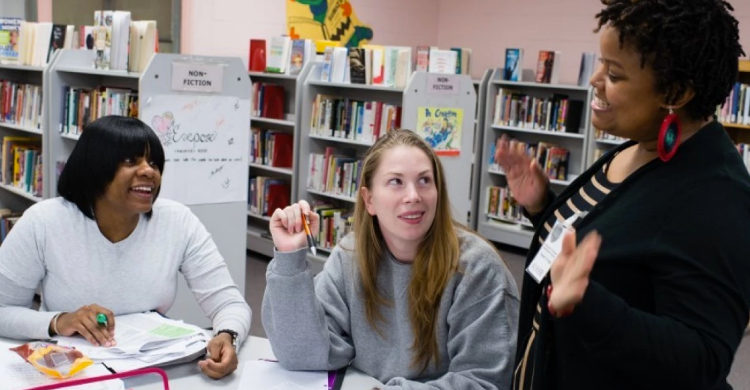América del Norte/EEUU/Junio 2016/Autor: Danielle Douglas-Gabriel,/ Fuente: The Washington Post
Resumen: Nada menos que 12.000 reclusos podrán utilizar subsidios federales Pell para financiar clases de la universidad el próximo mes, a pesar de una prohibición del Congreso de 22 años en la prestación de ayuda financiera a los presos.
As many as 12,000 prison inmates will be able to use federal Pell grants to finance college classes next month, despite a 22-year congressional ban on providing financial aid to prisoners.
The Obama administration selected 67 colleges and universities Thursday for the Second Chance Pell Pilot Program, an experiment to help prisoners earn an associate’s or bachelor’s degree while incarcerated. The schools will work with more than 100 federal and state penitentiaries to enroll inmates who qualify for Pell, a form of federal aid that covers tuition, books and fees for college students with financial need. Prisoners must be eligible for release within five years of enrolling in coursework.
Congress prohibited inmates from accessing Pell grants in 1994, arguing that it was unfair for prisoners to receive a share of already limited financial aid dollars. Critics of the ban said it was a rash decision because educating people behind bars reduces the chances of them committing more crimes upon release.
Although the ban remains firmly in place, the Obama administration is using its authority to create limited experiments in the deployment of federal student aid. Other recent experiments include extending Pell grants to high school students enrolled in college course and people participating in computer coding bootcamps.
“We all agree that crime must have consequences, but the men and women who have done their time and paid their debt deserve the opportunity to break with the past and forge new lives in their homes, workplaces ad communities,” Education Secretary John B. King Jr. said on a call with reporters Thursday. “This belief in second chances is fundamental to who we are as Americans.”
King said the administration will provide approximately $30 million in Pell grants to inmates in 27 states. He said the funding is less than 0.1 percent of the overall $30 billion Pell program, and the pilot won’t affect funding to eligible Pell recipients who are not incarcerated.
A majority of the schools invited to participate in the pilot are public community colleges and four-year universities, including Anne Arundel Community College, University of Baltimore and Rappahannock Community College. Most will offer classroom-based instruction at corrections facilities. Others will offer online education, or a hybrid of classroom and online instruction. Participating schools can begin offering courses as early as July 1. Roughly 37 percent of the schools will offer prison-based education for the first time.
For participants like Goucher College, the pilot simply builds on an existing effort to educate the incarcerated. The private liberal arts school outside Baltimore runs a program with private funding at a Maryland state prison complex in Jessup. Education Department officials estimate that 100 inmates will be able to receive grants to obtain bachelor’s degrees through Goucher. The school enrolls 60 to 100 prisoners at a time.
A year ago, then Education Secretary Arne Duncan and Attorney General Loretta Lynch visited the Goucher program to announce the pilot program.
On Thursday, Lynch said, in a statement, “Access to high quality education is vital to ensuring that justice-involved individuals have an opportunity to reclaim their lives and restore their futures. This program will help give deserving incarcerated individuals the skills to live lives of purpose and contribute to society upon their release.”
A study by the Rand Corporation found that inmates who participated in educational programs in jail were 43 percent less likely to return to prison within three years than those who did not. Researchers also estimated that for every dollar poured into correctional education programs, four to five dollars are saved on three-year re-incarceration costs.
“Helping incarcerated men and women to gain new knowledge, skills and credentials increases their chances of living successful lives, saves public dollars and makes our communities and our country safer and stronger,” King said.
The Second Chance Pell Pilot is a part of a broader set of policies the Obama administration has proposed to reform the incarceration system, including improving education in juvenile justice facilities and helping colleges to remove barriers to education for people with criminal records.
Fuente de la noticia: http://readersupportednews.org/news-section2/318-66/37657-12000-inmates-to-receive-pell-grants-to-take-college-classes
Fuente de la imagen: http://readersupportednews.org/images/stories/article_imgs21/021596-prisoner-students-062516.jpg







 Users Today : 17
Users Today : 17 Total Users : 35460370
Total Users : 35460370 Views Today : 24
Views Today : 24 Total views : 3419124
Total views : 3419124